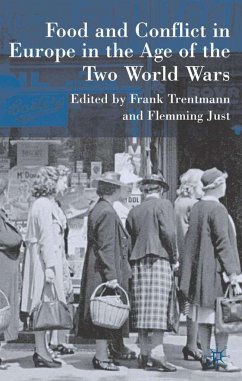This volume examines conflicts over food and their implications for European societies in the first half of the Twentieth century. Food shortages and famines, fears of deprivation, and food regulations and controls were a shared European experience in this period. Conflicts over food, however, developed differently in different regions, under different regimes, and within different social groups. These developments had stark consequences for social solidarity and physical survival. Ranging across Europe, from Scandinavia and Britain to Germany, Italy and the Soviet Union, this volume explores the political, economic and cultural dynamics that shaped conflicts over food and their legacies.
Hinweis: Dieser Artikel kann nur an eine deutsche Lieferadresse ausgeliefert werden.
Hinweis: Dieser Artikel kann nur an eine deutsche Lieferadresse ausgeliefert werden.
'Far from something of the distant past, crises surrounding food, its production, distribution, and consumption, marked the lives of Europeans across the continent, throughout the first half of the twentieth century. The remarkably diverse and consistently first-rate contributions to this volume demonstrate this importance, in questions from civil society to state control, globalization, and 'racial' policies. This excellent collection shows who ate, when, and how, and why it mattered.' - Belinda Davis, Rutgers University New Brunswick, USA, and author of Home Fires Burning: Food, Politics, and Everyday Life in World War I Berlin (2000)








